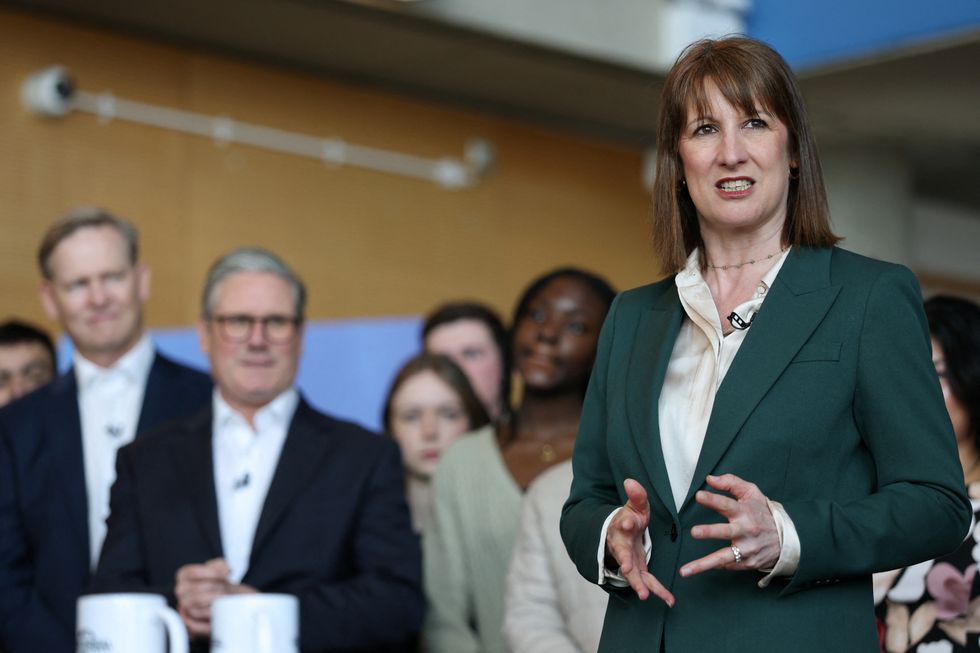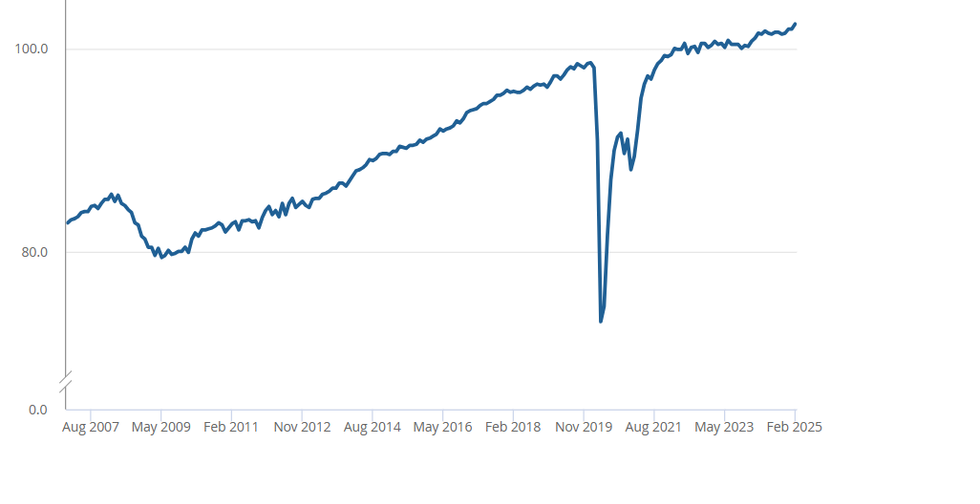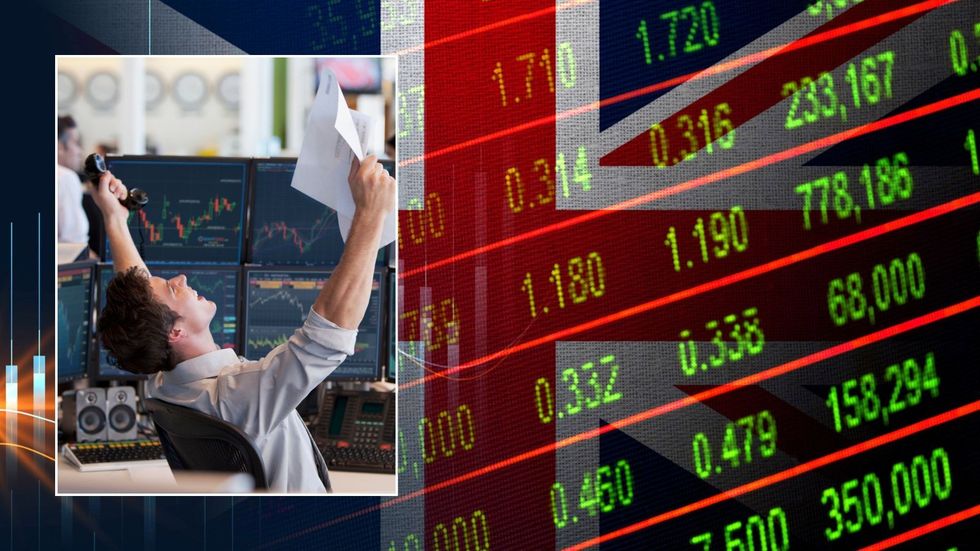Carole Malone takes aim at Rachel Reeves for 'trashing' UK economy with Spring Statement - 'What planet is she on?'
GBNEWS
Experts had expected much slower growth - around 0.1 per cent
Don't Miss
Most Read
Trending on GB News
The UK economy grew by 0.5 per cent in February, according to new figures from the Office for National Statistics (ONS), marking a welcome rebound after a slight dip in January.
However, economists warn the outlook remains uncertain, with ongoing concerns over global trade tensions—particularly the impact of fresh US tariffs under President Trump.
This 0.5 per cent growth in February follows a flat performance in January, which was originally reported as a 0.1 per cent decline.
The boost was mainly thanks to stronger activity in services like health and education, as well as in construction. Services grew by 0.3 per cent, helped by strong activity in sectors like tech, telecoms, and car sales.
Manufacturing saw a 1.2 per cent rise, with electronics and pharmaceuticals performing particularly well. Construction also contributed, with output rising by 0.4 per cent.
The figures mark a surprise boost for Labour and Chancellor Rachel Reeves, offering some welcome momentum after the party made economic growth its top priority since winning last year’s election.
On X (formerly known as Twitter), the Chancellor said: "The latest growth figures are encouraging signs that our Plan for Change is working. But we are not complacent. The world has changed.

Rachel Reeves sees surprise boost in GDP in February
PA
"We must go further and faster to kickstart economic growth, provide security for working people and put more money in their pockets."
Despite February’s positive figures, economists remain cautious. Rising inflation, weak consumer confidence, and the threat of global trade disruption could all weigh on future growth in the months ahead.
David Morrison, Senior Market Analyst at FCA-regulated fintech and financial services provider, Trade Nation, said "Finally there’s some good news for UK Chancellor Rachel Reeves. But it’s also the case that one number doesn’t make a trend. The outlook for the UK economy remains downbeat, with the added uncertainty of the effects of Trump’s watered-down tariffs.
"Amid the ongoing tariff chaos, the market reaction to the better-than-expected data was understandably muted. Sterling briefly spiked higher, while the FTSE 100 futures added to gains as they followed the overnight rally in US stock index futures."

UK GDP figures rise more than expected
ONS
Liz McKeown, director of economic statistics at the Office for National Statistics (ONS), said: "Looking at the broader picture, the economy has grown solidly over the past three months, with widespread gains across the services sector."
While the uptick is encouraging, it remains to be seen whether this growth will translate into relief for households facing high living costs, rising interest rates, and stubborn inflation.
Experts believe the growth could be short-lived. Gurpreet Narwan, Sky News business and economics correspondent said that: "It might be the last growth we see now that Donald Trump has imposed sweeping tariffs on countries across the world."
While Trump has slightly reduced the global tariff to 10 per cent for the next 90 days, a full-scale trade war is still underway—especially between the US and China. Chinese imports now face tariffs of up to 145 per cent.

The UK economy grew by 0.5 per cent
GETTYShe continued: "There's a huge trade war still unfolding between the world's largest economies, China and the US. That will have ripple effects for the global economy, including here in the UK."
The Conservatives have also criticised Labour’s handling of the economy, saying there’s still "a long way to go" to deliver real growth.
Shadow Chancellor Mel Stride claimed Labour’s decisions had "killed growth stone dead" and pointed to worsening forecasts for inflation, growth, and borrowing at the emergency budget.
"Hardworking families deserve better," he said, adding that people are set to be £3,500 worse off due to what he called a "jobs tax."







